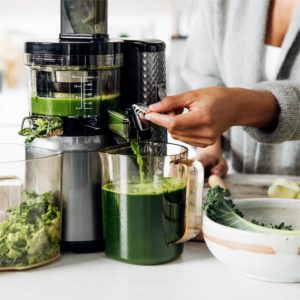It is the age-old competition for breakfast compliments. It’s a juice battle that goes well beyond the breakfast table.
Everyone has a preferred option. Orange juice or apple juice? Which is best?
Apple juice has a greater variety of flavors than orange juice, but orange juice appears to contain more micronutrients. They are both high in antioxidants and sugar, making them delicious.
Although you may have a preference, there is more to these simple fruits than their flavor.
Apple Juice Advantages
Apples are cultivated worldwide, and their numerous species possess various flavors. Gala, Pink Lady, Honey Crisp, and Golden Delicious are well-known apple varieties with distinct tastes.
Apple juices contain essential phytonutrients, antioxidants, pectin, and phenolic compounds. They can reduce the risk of numerous chronic diseases, including cardiovascular disease, asthma, heart disease risk, and high blood pressure.
Additionally, apples are an excellent source of minerals like manganese and boron.
Cloudy apple juice, including apple cider, is frequently the most nutritious option. It contains more polyphenols than its counterpart, which is not dirty. According to one study, cloudy apple juice contained up to 62% more polyphenols than clear apple juice.
This is likely the result of the filtration process used to clear apple juice. This filtration process eliminates some natural dietary fibers and vitamins.
Typically, supermarket apple juices are artificially fortified with Vitamin C (ascorbic acid) to prevent oxidation and compensate for the generally low levels of Vitamin C in the apples used to make supermarket apple juice.
Orange Juice Benefits
Orange juice is a worldwide favorite but grows best in warmer climates to transport it over great distances.
Orange juice is an excellent source of vitamin C, potassium, and the B vitamins folate and thiamine.
Vitamin C promotes wound healing, bone development, and gum health. Potassium prevents bone loss, regulates blood pressure, and wards off heart disease and stroke.
Orange juice contains antioxidants such as carotenoids, flavonoids, and ascorbic acid, like apple juice. Antioxidants aid in protecting the body from oxidative damage.
Intriguingly, freshly squeezed orange juice can increase the alkalinity of your urine, decreasing your risk of developing kidney stones. Oranges are rich in Vitamin C, which has been shown to increase the risk of developing kidney stones. Everything should be done in moderation.
Orange juices sold in supermarkets are frequently fortified with calcium and vitamin D. This is okay if you are looking to supplement your Calcium and Vitamin D intake; however, it is always preferable to obtain these nutrients from their natural source.
Which is the most nutritious whole fruit juice?
Undiluted apple juice and orange juice contain the same number of calories per volume. This is primarily due to their inherent sugar content. When considering tooth decay, high sugar content should be taken into consideration.
In terms of antioxidant content, they are similarly comparable. Vitamin and nutrient content-wise, orange juice has a slight edge over apple juice.
Numerous orange and apple juices sold in grocery stores contain added sugars, high-fructose corn syrups, or sweeteners, which increase their calorie content. As with the healthiest juices, it is always best to make juice home from fresh, whole fruits if you are concerned about calories and additives.
The decision between blending apples and oranges into smoothies or juicing them comes down to the desired outcome.
Perhaps your choice between juicing and smoothies is based solely on personal preference, which is a sufficient justification. Compared to smoothies, juicing removes some dietary fiber and micronutrients from the final product.
Fresh orange juice and fresh apple juice are beautiful complements to any diet or meal plan when consumed in moderation as part of a healthy, balanced diet. Both can contribute to a healthy, balanced diet, though neither will satisfy all your nutritional needs.
Different Fruit Juices
There are more fruits than just apple juice and orange juice worldwide. And while citrus fruit is lovely, why not add other fruits to the mix?
Cranberry Juice
Cranberry juice is thought to aid in the prevention of urinary tract infections (UTIs). It can prevent bacteria from adhering to the urinary tract, thereby preventing diseases. Although a review of 24 studies investigating this topic concluded that cranberry juice does not affect urinary tract infections, your experience may differ.
Beetroot Juice
Beetroot juice is a popular vegetable among athletes.
There is evidence that beet juice can increase levels of Nitric Oxide in the body, producing mild effects comparable to blood doping, including increased blood flow and strengthening of muscle contractions.
Although the nitrate content of beets can vary significantly based on species and growing conditions, it is difficult to determine how effective your humble beetroot will be as a dietary supplement.
Blueberry Juice
Blueberries are a fruit that has been extensively studied for something so small.
Naturally, blueberries are renowned for their high levels of antioxidants. A study examined 168 individuals who consumed one liter of blueberry juice daily for four weeks. It was discovered that participants’ oxidative damage (damage caused by free radicals) was decreased by 20%.
In another eight-week study, obese participants consumed 50 grams of blueberries daily. According to the survey, the participant’s blood pressure was reduced by about 4 to 6 percent.
Blueberries are also an excellent post-exercise snack. In a separate study, blueberries were found to hasten muscle recovery in 10 female participants who had all performed the same strenuous leg exercises.
Grape Juice
Grapes are not only delicious, but they also have numerous beneficial health properties.
Compared to apple juice or orange juice, a compound in grapes called resveratrol protects retinal cells from ultraviolet light. This may reduce the likelihood of developing age-related macular degeneration.
Grapes are also beneficial for our brains.
In the first study on grapes and the brain, 111 healthy adults were given 250 mg of a grape supplement for 12 weeks. On cognitive tests that assessed language, memory, and attention, they discovered that the participants had significantly improved.
The second grape-brain study gave 230ml of purple grape juice to a small sample of healthy young adults. The study found that 20 minutes after drinking grape juice, the participants’ memory, attention, and mood were enhanced. Not bad for a grape juice glass.
Pomegranate Juice
An abundance of the antioxidant anthocyanin gives pomegranates their distinctive dark red hue. Vitamin K is abundant in pomegranate juice and contributes to heart health, bone development, and blood clotting.
Not as readily available as apple juice or orange juice, but still a delicious option.
Acai Berry Juice
Acai berries have gained popularity relatively recently, but there is still a great deal of research being conducted on their health benefits.
They contain extremely high concentrations of antioxidants, including ferulic acid, chlorogenic acid, and numerous flavonoids. Acai berries may contain more antioxidants than blueberries, renowned for their antioxidant content.
Grapefruit Juice
Grapefruit is another fruit renowned for its high antioxidant content. Interestingly, as the fruit is processed further, its antioxidant content decreases. Therefore, rather than juicing grapefruit, it may be preferable to consume it in a smoothie or simply as segments.
Notably, grapefruit has been shown to interact with numerous prescription drugs, including blood pressure medications, blood thinners, and antidepressants.
Pineapple Juice
According to several studies, pineapple can reduce inflammation. This is believed to be primarily due to bromelain, a compound found in pineapples. Bromelain could be as effective as nonsteroidal anti-inflammatory drugs (NSAIDs) like ibuprofen at reducing inflammation, but with fewer side effects.
Additionally, pineapple juice may help strengthen your immune system. This is also due to the pineapple’s bromelain content—an excellent complement to your regular apple juice or orange juice.
Tomato Juice
Tomato juice is an excellent post-workout recovery beverage. It works wonders to give you an incredible feeling of freshness. Try it with ice and a pinch of salt.
Tomatoes have a mild laxative effect by nature. They can be an effective digestive aid and constipation preventative.
Additionally, tomatoes are a good source of lycopene. Lycopene is an antioxidant and carotenoid responsible for the red color of tomatoes. There is evidence that lycopene can reduce the risk of cardiovascular disease.
Conclusions Regarding Apple Juice vs. Orange Juice
Apple Juice and Orange Juice are excellent sources of antioxidants, vitamins, and minerals. Apple juice has a wide range of flavors for a single fruit.
If given the option, cloudy apple juice is healthier than its transparent counterpart. The dirty variety contains 62% more polyphenols and micronutrients than the precise variety.
Orange juice is an excellent source of vitamin C, potassium, and vitamin B. Intriguingly, its pH level may also aid in preventing kidney stones.
Both orange juice and apple juice contain a considerable amount of sugar. Oranges or apples served in a smoothie, or even as whole fruits, may be a good option for adding fiber alongside the sugar content to support gut health. Including vegetable juices is another way to add variety to a dish.
If you are looking for creative ways to incorporate orange juice, apple juice, or other fruits into your diet, you should seek the counsel of a qualified dietitian, not Dr. Google.
Moreover, if you care about taste, it is merely a personal preference. And if you’re concerned about sugar while purchasing orange juice or apple juice, look for those without added sugar.
However, you should still avoid consuming excessive amounts of either beverage due to its high natural sugar content. If you drink orange juice frequently, you should be aware that it is highly acidic and may cause mouth ulcers.
Related Posts
Best orange juicer for energy every morning
Disclaimer: There are affiliate links in this post. At no...
Read MoreBest Masticating Juicer On The Market Today
Disclaimer: There are affiliate links in this post. At no...
Read MoreBest Cold Press Juicer For Making Fresh, Delicious Juice At Home
Disclaimer: There are affiliate links in this post. At no...
Read MoreBest Manual Citrus Juicer For Homemade Squeezed Juice
Disclaimer: There are affiliate links in this post. At no...
Read MoreWhy Trust Us
You will find what you are looking for at dulceriabakery. From classic to luxury brands, you'll find both. We will help you to select appliances that fit your needs, budget and lifestyle. Whether you want to stop by to learn more — or plan to make a major purchase — we’ll treat you like family and assist you every step of the way. Shop with us today to receive friendly and experienced help along the way.




